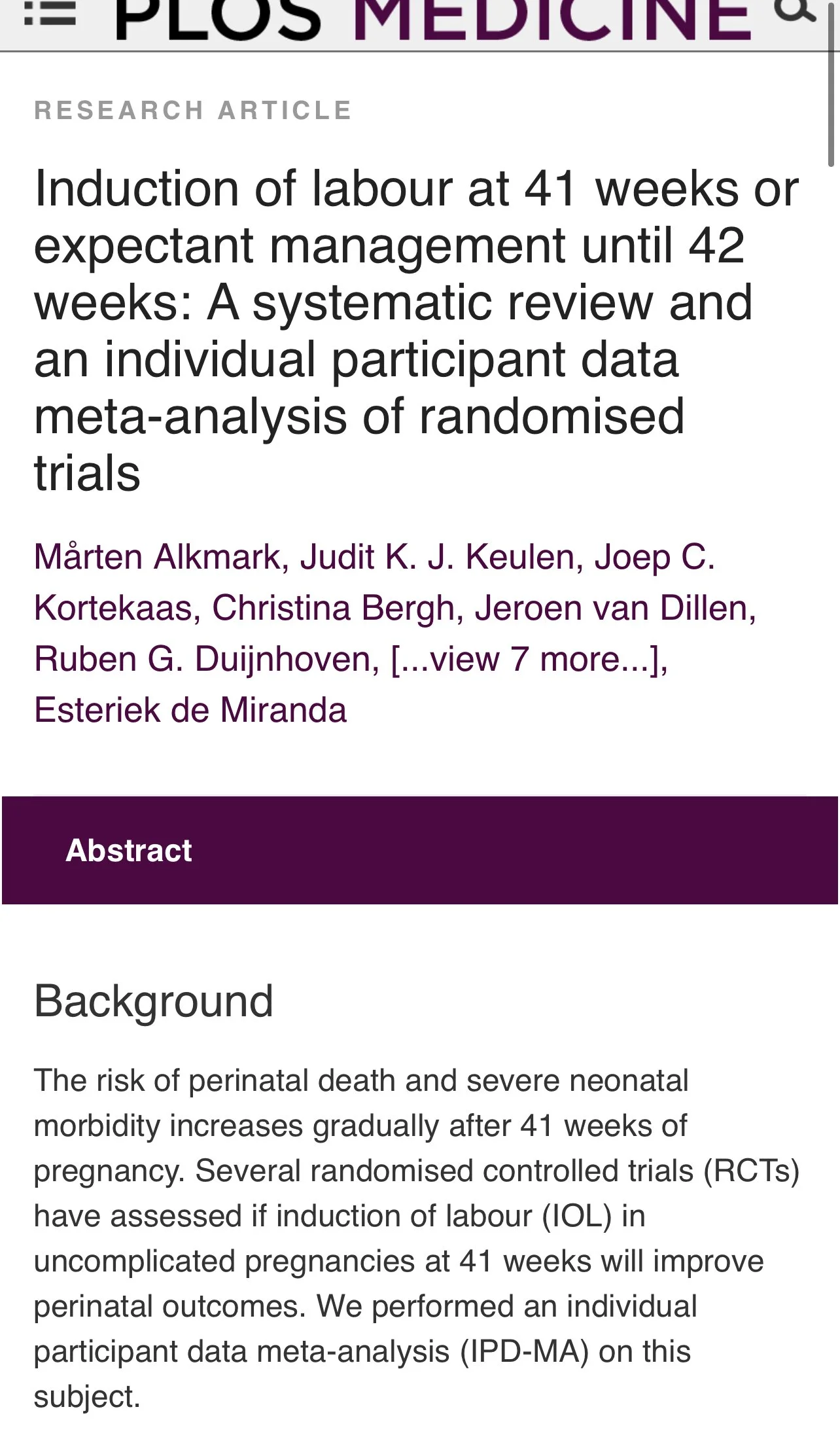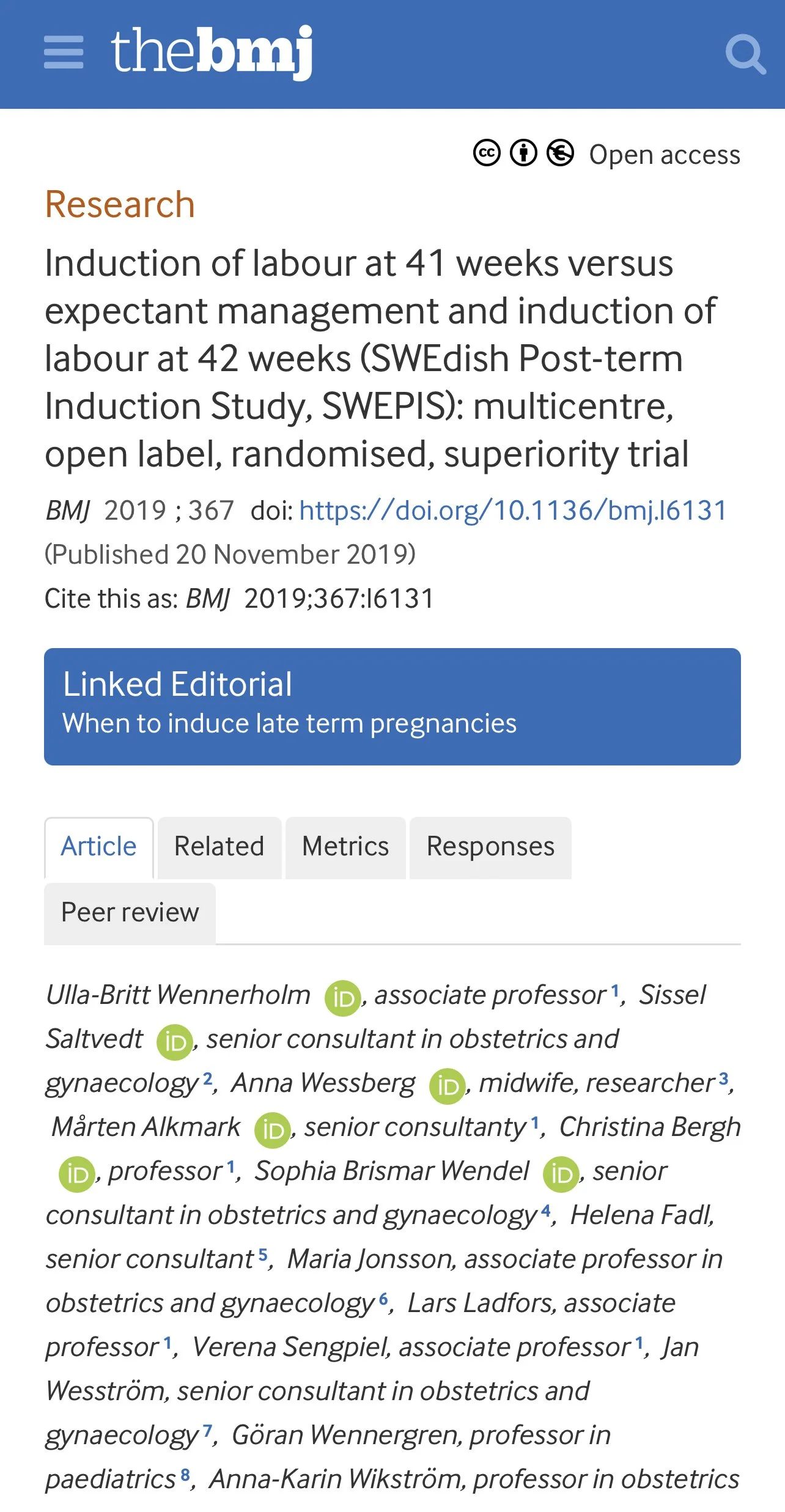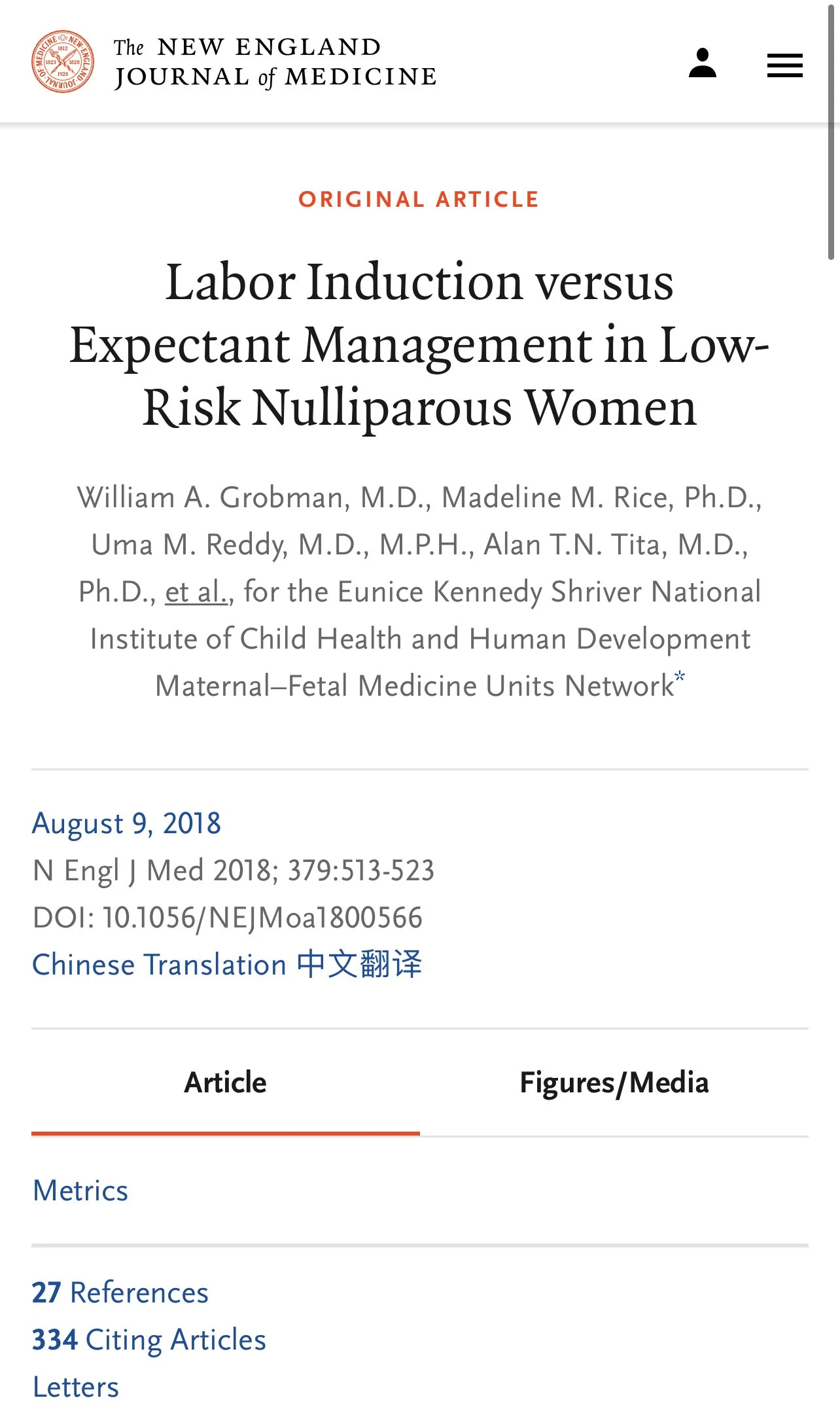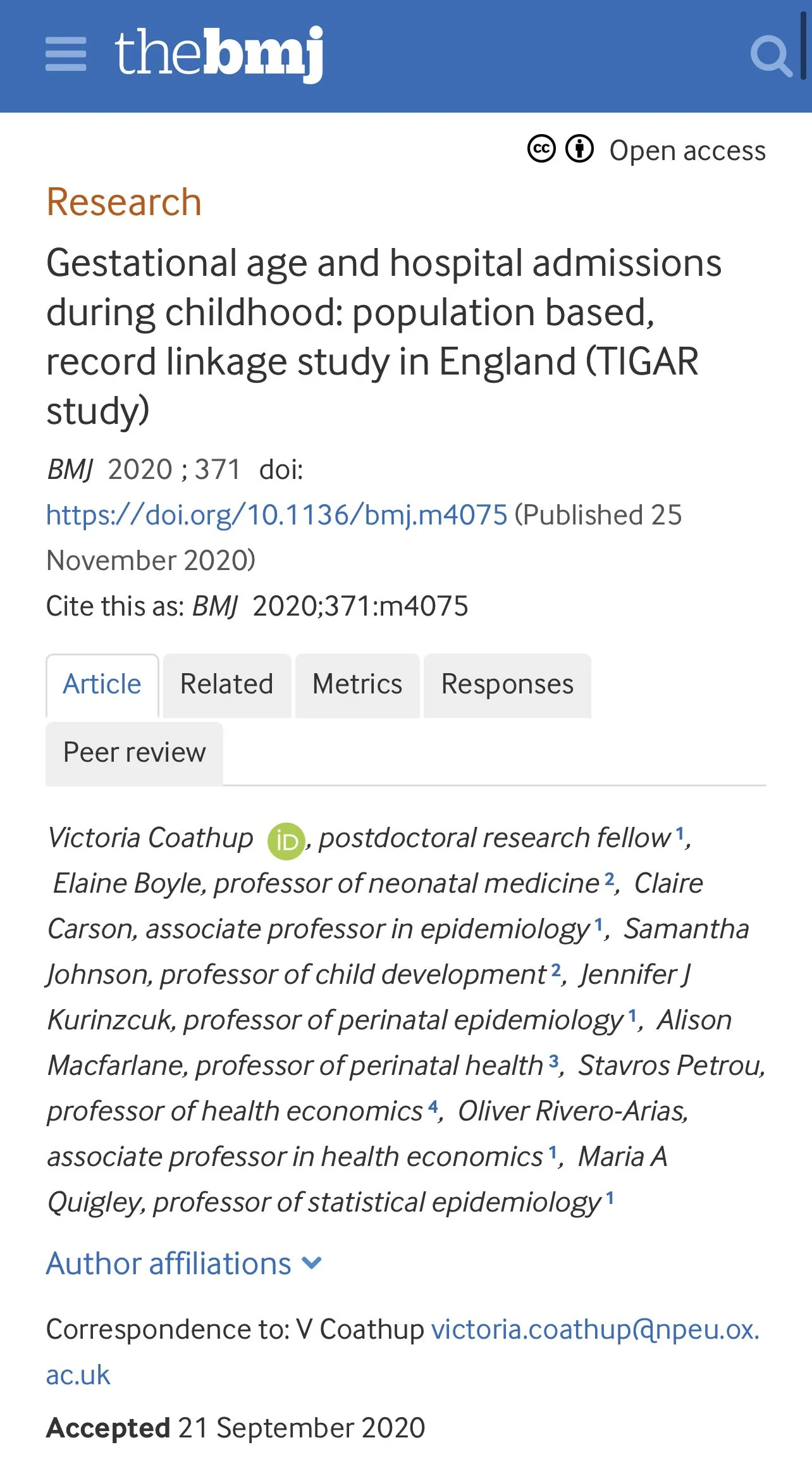Induction of labour?
Okay, here's a topic that comes up a lot. Should I be induced? Normally induction of labour (IOL) is only advised if there is a good reason for baby to be born early – meaning it's too risky for mum or baby for him or her to stay inside. Reasons might be high blood pressure, diabetes, growth problems for baby, bleeding, etc. If everything is healthy, then what's the go with elective induction? Some people want to baby out early for family convenience, fatigue or discomfort or because labour has been super fast before.
Can IOL prevent rare but serious issues like stillbirth -when baby passes away unexpectedly? Does IOL make Caesarean section more likely? How early is too early and are there risks with that?
Usually IOL is offered at 10 days over your due date when the risk of stillbirth starts to increase more. We've known for sometime that IOL at 40+10 reduces the risk of caesarean section and baby needing to be in at admitted to the neonatal ICU.
The Alkmark study, published in 2021 compared IOL at 40+0 to IOL at 42+0 and found a halving of severe neonatal problems for baby, including stillbirth (1-in-2000 for IOL at 41 vs 8-in-2000 for IOL at 42 weeks). The benefit was even stronger for first time mums – 80% lower risk of severe neonatal problems and stillbirth risk: 0/100 vs 1/100.
A lower risk of stillbirth was found in the 2019 Swedish SWEPIS is study too. It compared 41 vs 42 weeks for IOL. There were no neonatal deaths in the 41-week IOL group vs 6 in the 42-weeks IOL group. No difference in caesarean section or assisted birth -vacuum or forceps. It was believed to be unethical to continue the study due to the clear benefit of IOL at 41 weeks, and it was stopped early.
What about even earlier than 41 weeks then? The ARRIVE study included first time mums and compared IOL at 39 weeks versus 40+5. They found no benefit for babies with IOL at 39 weeks, but a slightly lower chance of needing caesarean section with IOL at 39 weeks (19% versus 22%).
Then, the authors of the ARRIVE study combined their research data with other data from six studies. Now, this wasn't the best type of research for giving exact and reliable answers. The best research for that is active random allocation and then see what happens – an RCT (like the original ARRIVE study). This was an 'observe what happened when…’, or cohort study. But it was a large review of the literature: 66,000 first-time mums were induced vs 580,000 who waited.
Elective induction at 39 weeks was associated with a lower caesarean section risk (26% versus 29%) and a lower chance of neonatal issues needing admission to intensive care (3% versus 5%). The stillbirth risk was 1-in-2500 with IOL compared to 5-in-2500 with waiting.
Risks to being born early?
So what about other risks for baby of being born early? The 2020 TIGAR study looked at children admitted to hospital (1,300,000 admissions). Compared to being born at 40 weeks, children who were born at 28 weeks were six times more likely to be admitted to the hospital under the age of 10 than full-term babies.
But being born at 38, 39, 40 weeks still lead to a higher chance of being admitted to hospital in early childhood, compared to 41 to 42 weeks.
Other research has found that early birth at 37 to 39 weeks increases the risk of behavioural problems and needing specialist educational support.
Summary and what now?
Phew! Sorry about the heavy numbers, but as you can see there is no easy answer to this question. My take on this is:
Care providers should discuss the benefit of having IOL at 41 weeks: slightly lower caesarean risk and a lower chance of stillbirth
If you choose IOL from 39 weeks as a first-time mum, there is likely a slightly lower chance of needing a caesarean section (no difference for women who birthed before), maybe a lower chance of stillbirth - but that’s still very rare.
Being born before 40 weeks increases the chance of childhood hospital admissions for babies and children under age 3 and behavioural problems in childhood (16% higher risk).
IOL is not a walk in the park! The pain is likely to be more overwhelming, there are more interventions: multiple care providers, IV drip in your arm, continuous monitoring of baby’s heartbeat will be recommended during labour, more difficult to be mobile and it’s not always possible to use water immersion to help with the pain. And it's often not quick either: it can take a few days and sometimes it just doesn't work.
As always, talk to your own team; your situation is likely to be different and information here is general information, based on research.



